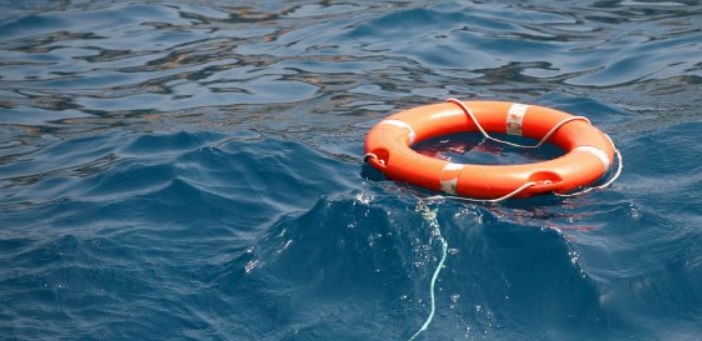On Thursday, January 9, the USCG rescued three crewmembers from the sinking 62-foot tugboat, Gulf Man, approximately 6 miles northeast of Andros Island, in the Bahamas.
Coast Guard 7th District watchstanders received an emergency position indicating radio beacon (EPIRB) alert for the Gulf Man at approximately 6:20 p.m. and directed the launch of the helicopter crew.
In fact, the tugboat was taking on water when a Coast Guard Air Station Clearwater MH-60 Jayhawk helicopter crew arrived on scene and hoisted all three crewmembers and then transported them to Nassau, Bahamas; no injuries were reported.
Lt. Andrew Connell, operations officer at Air Station Clearwater commented that “thanks to the proper utilization of an EPIRB, we were able to get on scene and rescue three people from a very dangerous situation,” adding that
Always properly prepare yourself with safety and communications equipment before taking to the sea. Flares, EPIRBs and VHF radios can be game changers in the event of an emergency.
In the past, the USCG issued a Safety Alert, to remind all mariners of the appropriate use of Single Side Band High Frequency (SSB-HF) radios when attempting to contact the Coast Guard outside the normal range of Very High Frequency-Frequency Modulation (VHF-FM) marine radios.
USCG underlined that many mariners attempt to contact the Coast Guard using their EPIRBs, cell phones, SAT phones, and even NOAA weather electronics, despite each of these communications devices has its own limitations and specific functional capabilities.
It is noted that SSB-HF radios equipped with digital selective calling (DSC) can trigger an alert at Coast Guard Communications Command and are an especially reliable means for initiating communications with the Coast Guard during distress situations.
[smlsubform prepend=”GET THE SAFETY4SEA IN YOUR INBOX!” showname=false emailtxt=”” emailholder=”Enter your email address” showsubmit=true submittxt=”Submit” jsthanks=false thankyou=”Thank you for subscribing to our mailing list”]
What is more, in an exclusive interview with SAFETY4SEA at Nor-Shipping, Oslo, Mr. Baba Devani, Managing Director of Marine Operations at SURVITEC, discussed the need for owners and operators to emphasize on quality of safety equipment to ensure true compliance and safety performance.
When selecting safety equipment, it is important for the ship owner or operator to understand what the quality of the product they buy is, how it is manufactured, how it is tested, as well as what regulatory standards it meets, Mr. Devani said.
To ensure safety performance onboard, operators have to satisfy themselves in the equipment work and to make sure they get that equipment serviced by a properly accredited and approved supplier.






























































